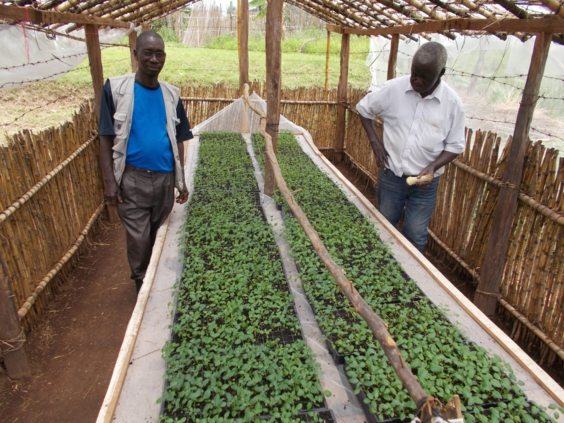WAGENINGEN – Potatoes grown from Dutch seeds yield two to four times bigger harvests for small-scale, poor farmers in East Africa than potatoes grown using local seed potatoes. These findings are the result of initial tests using experimental varieties grown from potato seeds by Wageningen-based agro-tech company Solynta in the Democratic Republic of Congo.
As such, potatoes grown from seeds may prove to be an effective means to provide not only the growing population of Africa, but also those of India, Bangladesh and China with more and better food, and thus contributes to reducing hunger.
For several years now, Solynta has been working on breeding potatoes grown from the actual seeds of potato plants. This method allows one to develop new varieties of potatoes faster, varieties that are better able to withstand potato blights, in turn making the use of pesticides obsolete. These varieties produce increased yield and are 
Solynta expects they will be able to bring the first marketable potato varieties to the market in 2021. “But really, we can’t afford to wait that long, because 30,000 people die of hunger and malnutrition every day,” says general director Hein Kruyt. “The test in Congo has shown us that Solynta’s True Potato Seeds can contribute solving a serious problem, including in other countries where hunger is an issue.” That is why Solynta is looking for partners and support to be able to supply potato seed sooner to developing countries and other countries where the farmers are looking to increase yield.
The results of the experiment were rather unexpected. Solynta sent an envelope containing the seeds of 10 experimental potato varieties to Nioka in Congo, a representative location for overall potato cultivation in the highlands of East Africa. These seeds were then sown throughout the first half of 2016. Although the test was performed under tough conditions and there was barely any rain for 90 days, the seeds yielded between eight and 29 tonnes of potatoes per hectare, two to four times the usual yield in Africa. “Keep in mind that this experiment wasn’t even conducted with our best seeds – just think of what kind of yield those could produce,” says Kruyt.

Seed potatoes from the Netherlands are unaffordable. On top of that, the containers full of seed potatoes coming out of Europe often spend weeks sitting in the harbour, and it takes even longer for them to be transported to the hinterland. A good portion of the seed potatoes may spoil in that time. Says Kruyt: “We are able to send an envelope full of good, clean seed, instead of a container, within 24 hours, for farmers to use to get started on their harvest.”











